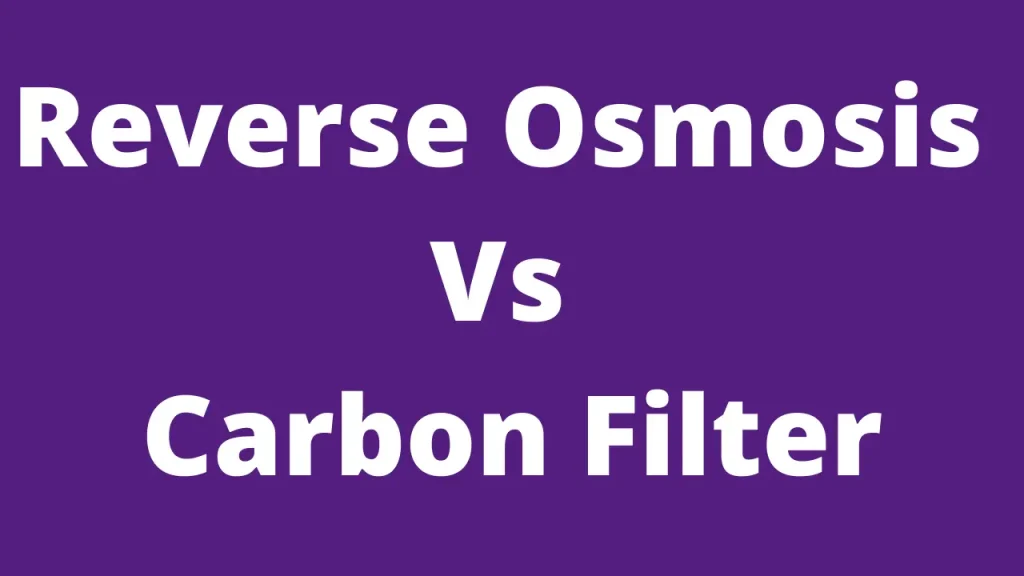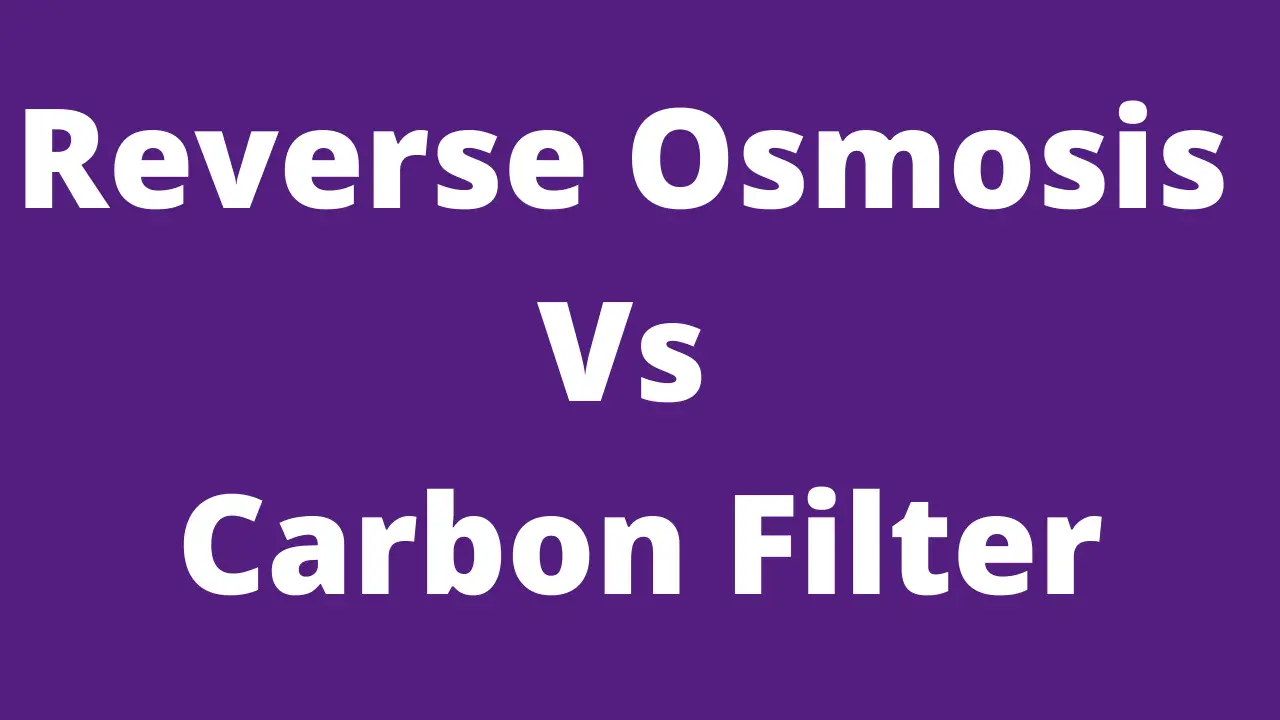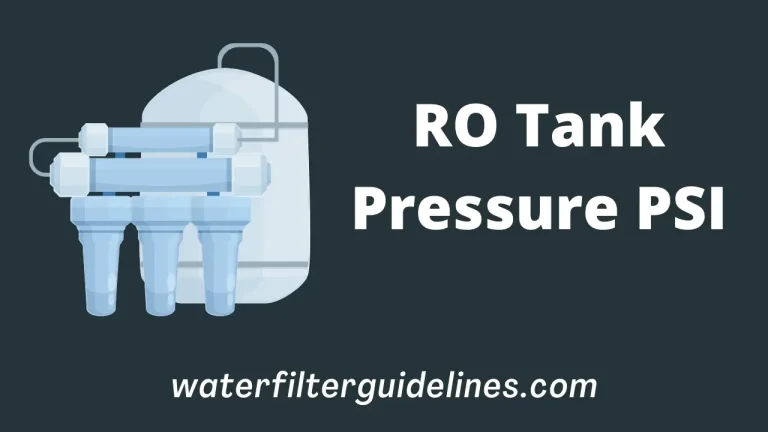Reverse Osmosis Vs Carbon Filter
Water filtration is the need of 70% of the world’s population because the water coming out of your tap is not fit for drinking. Water filters have a variety of kinds, and the majority of households need water filters according to the types of impurities present in their water. The water quality test can help you find out your water’s composition. If your water filter has no unwanted substances like heavy metals, microbes, or dust particles, you and your family are safe from waterborne disease. This guide will discuss the basic difference between the Reverse Osmosis System and Carbon Water Filters. The Reverse Osmosis Vs Carbon Filter is a debate we all have before getting the best Reverse Osmosis System for clean drinking water.

Comparison of Reverse Osmosis and Carbon Filter
What is the Reverse Osmosis System?
The reverse osmosis system uses a semi-permeable membrane to filter out the water impurities. The plasma membrane uses the Reverse Osmosis Process to pass out only selective particles 90% of the water drops pass through the system. Though the contaminants are of different kinds, the possibility of reaching them by filtering with a Reverse Osmosis system is negligible. The Reverse Osmosis System can filter particles of the size of 0.001 microns making it impossible for water contaminants to reach your glass of water.
Benefits
The RO water filter systems can effectively remove the 99% of impurities present in tap water. The water flow rate is slow, and you need to wait for a few seconds to fill your glass of water.
The filters are long-lasting, and you have to buy them after 6-12 months. A lot of whole house water filters have a one-year warranty of water filters that not only saves cost but helps you to get safe drinking water without any worry.
Drawbacks
The RO system is more extensive than the carbon water filters, and you need some space for installation. There are a lot of varieties in the RO system, including under sink, whole house, and countertop water filters, but all take ample space for installation.
The big concern among the critics of the Reverse Osmosis system is that it removes unwanted water contaminants and healthy minerals like calcium and magnesium from drinking water.
Why shouldn’t you use reverse osmosis?
The major problem one faces while using the RO system is the lack of minerals and ions in water. However, some RO systems have a remineralization filter that adds the valued minerals to your drinking water. When you drink water purified through Reverse Osmosis, there is a chance of mineral deficiency because water tends to absorb minerals from your body, which does not help maintain good health.
What are Carbon Water Filters?
The carbon water filter has activated Charcoal that helps remove chlorine, Volatile Organic Compounds, some heavy metals, and dust particles. The preference for a carbon water filter over unfiltered water is made because its cost is low, and maintenance is very easy. The carbon water filters have increased porosity, leading to an increase in surface area. When water is passed through the water filters, have activated Charcoal in them, the compounds causing bad taste and odor are predominately removed from the water.
Is Reverse Osmosis A Carbon Filter?
The Reverse Osmosis contains many water filters, and a Carbon filter is used as a pre-filter to filter out fluorides, organic particles, dust, and rust particles.
Benefits
The carbon water filters are usually installed on the houses where the water source is the city municipal water. The city water is treated to remove the dirty contaminated and is safe for drinking, but the odor and taste are somehow very unfit for drinking. The chorine molecules help remove these unwanted compounds, but the taste is very unpleasant.
The activated Charcoal is helpful to draw these chloramines, VOC, bad taste compounds, and some heavy metals.
Drawbacks
· The water comes out after the filtration procedure very slowly, and it might take some time to stay under the tap for pure drinking water.
· Bacterial strains, some heavy metals, and viruses go through the carbon filter, and your health might be at risk.
· The only bottleneck of the carbon water filter system is the low life span of water filters. You need to take a brief look at your filtration system every 8-12 weeks, and efficiency drops down if you don’t change the water filters.
Are carbon water filters better?
Activated Charcoal is the primary ingredient of the carbon filters, and they are used as a pre-filter or firest line of defense in water filtration systems. The carbon water filter is in demand due to its removal of foul odor and volatile organic compounds. The specific drawback of carbon water filters is that they don’t filter unwanted heavy metals. Still, they improve the overall quality of water and make it fit for drinking purposes.


Современная клиника предоставляет широкий спектр медицинских услуг для всей семьи.
Опытные врачи работают по международным стандартам и применяют передовые методики.
Мы обеспечиваем безопасная и уютная атмосфера для восстановления здоровья.
Мы предлагаем персонализированные медицинские решения для людей с различными потребностями.
Особое внимание мы уделяем поддержанию высокого уровня сервиса.
Все клиенты могут получить оперативную помощь по доступным ценам.
wiki.moz-news.com